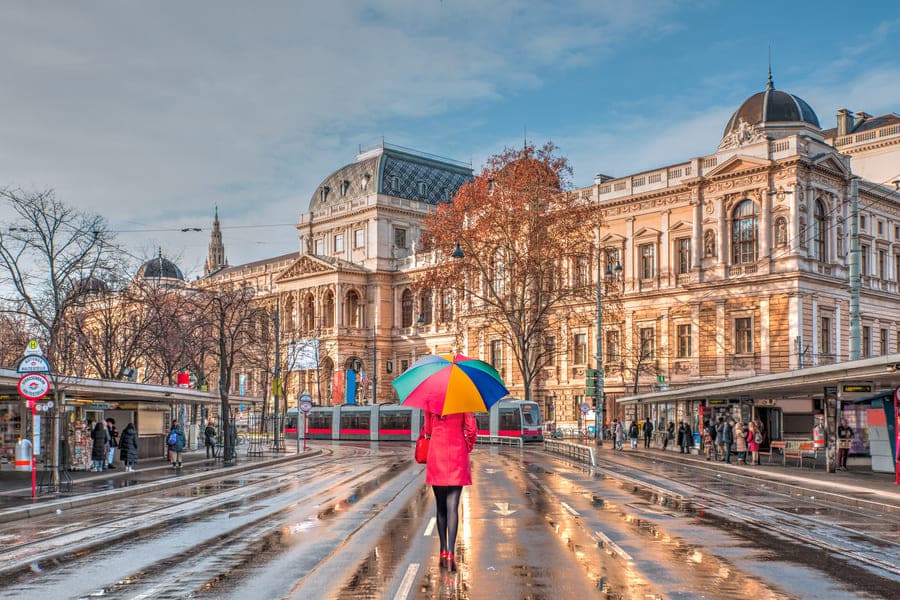I want to develop my business on the international scene. My wife wishes to live in a country with sound ecology and a healthy lifestyle. We would like our children to get a quality European education. So, moving to Austria sounds like a perfect plan. In reality, it was not easy and involved some risks, but thanks to the professional assistance of the lawyers, I succeeded and was very happy about it.

Oleg
Owner of a game development company in Ukraine
Clients’ names and photos have been changed
Oleg’s problems and goals
Oleg is an entrepreneur from Ukraine: he owns a game-development company. His business is gaining momentum, but it is difficult for him to develop it on the international scene. Oleg is also a father of two children, Valentin and Daria, and their future is his other concern. Oleg is eager to provide them with quality education and thinks there are more opportunities for that in the EU. So, he and his wife, Maria, decided to move to the European Union, namely, to Bulgaria.

Maria,
Oleg’s wife, a housewife
We have lived in Bulgaria for a year and got disappointed. The Bulgarian mentality and lifestyle were too similar to that back home in Ukraine. We didn’t feel a considerable improvement in quality of life after the relocation. So, when our Bulgarian residence permits expired, we decided to relocate again — this time to a more developed country in Western Europe.
Maria proposed that it should be Austria. The family often went on holidays there, and Maria liked the Austrian Alpine nature, attitude to ecological issues, healthy lifestyle, and education possibilities for children. Considering this option, Oleg was attracted by Austria’s central-European position, supportive State policies, and a history of international trade.
The decision was made, and the couple started to look for ways to move to Austria. Oleg’s friend moved to Portugal with the help of Immigrant Invest, so he advised Oleg to turn to our company for consultation.
Oleg contacted Immigrant Invest in May 2018 and stated his goal: he and his family needed to move to Austria by September. It was crucial for the couple that their 6-year old son Valentin would be able to start school in Austria in September and would not risk lagging in his education. Oleg also needed to have the right to run a business in Austria.

The University of Vienna is the third-oldest university in Central Europe. Nowadays, there are 18 faculties in the university, with the Humanities being the most renowned
Which way to move to Austria suited Oleg’s family
To move to Austria, one needs to obtain a residence permit: a document that allows foreigners to reside in the country. Wealthy people often choose to get Austrian residence for financially independent persons, but this option did not suit Oleg.

Lyle Julien,
Investment programmes expert
Residence permits for financially independent persons are allocated according to quotas at the beginning of each year, so Oleg would not be able to get it by the time his son needed to start school. Thus, this option was off the table.
If foreigners want to work in Austria, they may get one of the two residence permit cards: an EU blue card or a Red-White-Red Card.
An EU Blue Card can be obtained by those who:
-
have a university education;
-
have received a job offer to work in Austria, corresponding to the education;
-
are promised an annual income of at least € 66,593 (at least 1.5 times the average gross annual income of full-time employees).
Oleg did not find this option attractive as he wanted to develop his own business and not enter employment.
A Red-White-Red-Card can be issued to representatives of the following groups:
-
graduates of Austrian universities and colleges of higher education;
-
highly qualified workers;
-
skilled workers in shortage occupations;
-
other key workers;
-
self-employed key workers;
-
start-up founders.
The two latter options may suit Oleg, so we discussed them in detail and weighed the pros and cons thoroughly.
Comparison of the two options to get Austria residence as an entrepreneur
Oleg was not sure his business could be qualified as a start-up, so he chose to apply for Red-White-Red Card for self-employed key workers, though it demanded twice as much investment as a start-up visa to Austria.
How Oleg’s family obtained Austria residence
Normally, applicants for Austria Red-White-Red Cards for self-employed key workers act as follows: prepare a business plan, collect necessary documents, submit an application, and establish a company after they get approval. But Oleg did not want to follow this order of actions, and he had his reasons.

Lyle Julien,
Investment programmes expert
The package of documents must include proof of adequate accommodation in Austria. Usually, applicants provide a lease contract because it is impossible to buy a property in Austria for non-residents. Only citizens and resident permit holders of the EU are allowed to purchase real estate in Austria without restrictions.
Oleg and Maria insisted they wanted to buy an apartment rather than enter a lease agreement and had already found a suitable property in Vienna. Renting an apartment for a short time and then purchasing the desired one was not an option, as 15 months is the minimum term for rent, according to Austrian rules.
Immigrant Invest’s lawyers suggested purchasing the apartment via a company registered in the EU. That’s why Oleg’s plan of action was as follows: establish a company, open a business bank account, buy the apartment, prepare a business plan and other documents, and finally submit an application. There are not any restrictions for foreigners to open a company in Austria.
Step-by-step procedure of resident cards obtainment
Consultation
Opening a company and a bank account
Apartment purchase
Business plan and documents preparation
Submission of Oleg’s application
Red-White-Red Card obtainment
Submission of applications of Oleg’s wife and children. Moving to Austria
Red-White-Red Cards plus obtainment
Opening a company and a bank account. It took Oleg two weeks to establish a limited liability company, or GmbH. Another two weeks were spent on opening a business bank account as Austrian banks performed the deep Due Diligence on the origin of funds due to Oleg being a non-EU citizen.
Apartment purchase. When Oleg got approval from the bank and his account was opened, he transferred the money necessary to buy the apartment and purchased the property through his company. Immigrant Invest’s lawyers checked the purity of the purchase and sale transaction and ensured it was safe.
Preparation of a business plan and documents. We gave Oleg recommendations on whom he could turn to help create a business plan. The involved accountant and local legal experts drew up a successful business plan for Oleg that would appeal to the Austrian authorities.
The package of Oleg’s documents included:
-
Completed application form.
-
International passport.
-
Birth certificate.
-
Photo 3.5*4.5.
-
Health insurance covering all risks.
-
Notarised property deed.
-
Proof of adequate means of subsistence: income of more than €2,000 per month.
-
Evidence of the qualification: MBA Diploma of Kyiv business school.
-
Evidence of the transfer of €100,000 to Austria.
-
Proof of the €160 government fee paid.
-
Business plan.
-
Police clearance certificates from Bulgaria.

Vladlena Baranova,
Head of Legal & AML Compliance Department, CAMS, IMCM
Oleg needed to get the police clearance certificate only in Bulgaria but not in Ukraine, despite spending only a year in Bulgaria and living in Ukraine all his life. That’s because there is a rule in Austria: if third-country nationals have lived in the EU for more than six months, they must get the certificate in the EU country they lived in and do not have to get certificates in any other countries they lived in before.
The business plan is not a single document but a set of papers including a detailed analysis of the market and competitors and describing the business and management models, financing plan, payback period, potential income dynamics, and possible risks.
Oleg also had his documents translated by a court-certified translator and then apostilled.
Submitting the application. When all the necessary documents were gathered, Oleg submitted the application to the Immigration and Residence Authority in Vienna, accompanied by the Immigrant Invest’s lawyer.
Considering the application. The Immigration and Residence Authority forwarded Oleg’s application and documents to the Austrian Public Employment Service, or AMS. At the preliminary stage, AMS checked whether Oleg’s work really involved self-employment. It did, so AMS continued to the main check and examined the business plan.
In three weeks, AMS concluded that Oleg’s company would provide macroeconomic benefits, provided a positive opinion and forwarded the report back to the Immigration and Residence Authority. It means Oleg got preliminary approval. Then, the Immigration and Residence Authority examined all the other requirements and gave final approval.
Receiving residence permit cards. Having received approval, Oleg came to the Immigration and Residence Authority, was fingerprinted, paid fees and got his residence permit card. The cost for granting a card is €20, and another €20 is taken for fingerprinting. In total, it took Oleg three-and-a-half months to get the Austria Red-White-Red Card.
Submitting applications of Oleg’s wife and children. Spouses and children under 18 can join the Red-White-Red Card holder. However, they should apply separately, as they need to include evidence that their sponsor holds the required residence title in their package of documents.
The set of required papers was standard: completed application forms, passports, a marriage certificate, birth certificates, photos, health insurance, and proof of the fee paid. It also included a copy of Oleg’s residence permit card and a sponsorship letter.
The only caveat was that Maria needed to prove she knew German at least at the A1 level by providing the certificate issued by the Goethe-Institut, the TELC GmbH or ÖIF. As we told Maria about this requirement in advance, she had time to revise the language she used to study at school and passed the exam.
So, applications of Oleg’s wife and children were submitted to the same Immigration and Residence Authority in Vienna right after he got an Austrian residence permit. For Maria, it cost €120, and €75 was paid for each child.
Moving to Austria. As Oleg’s family are Ukrainian nationals, they are entitled to enter Austria without visas and spend up to 90 days each half a year. Thanks to this, the family managed to move to Austria as they wanted to — by the beginning of the school year.
All the family moved into their new apartment when Oleg got to know his application was approved. Before Maria, Valentin and Daria got their residence cards, they legally stayed in Austria as tourists.
Red-White-Red Cards plus obtainment. The Immigration and Residence Authority considered that Maria, Valentin and Daria met all the required conditions. So, as Oleg’s dependents, they got Red-White-Red Cards plus. For Maria, the card issuance cost €20, and for each child, it cost €50. Another €20 was paid for each of the three fingerprinting.
Oleg’s expenses on government fees for a family of four
-
€390 — application fees
-
€140 — cards issuance fees
-
€80 — fingerprinting fees
Oleg’s family lifestyle and plans for the future
Oleg and his family are settled in Austria. Valentin goes to an international school and Daria — to a private kindergarten. Oleg is implementing his business plan into life. Maria does not work as she wants to spend much time with the children to help them get comfortable in the new country. Yet, Maria will be able to work in Austria in the future, as Red-White-Red Card plus holders are allowed to be employed.
Oleg’s card is valid for two years and may be extended for another three years if he can prove his business functions and makes a profit. If the family lives in Austria for 5 years on their Red-White-Red Cards, they get the right to obtain a long-term resident EU permit. After ten years of residence in Austria, they become eligible to apply for citizenship.
Immigrant Invest is a licensed agent for government programs in the European Union and the Caribbean.









